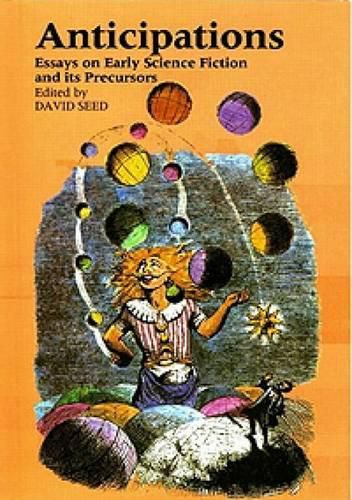Readings Newsletter
Become a Readings Member to make your shopping experience even easier.
Sign in or sign up for free!
You’re not far away from qualifying for FREE standard shipping within Australia
You’ve qualified for FREE standard shipping within Australia
The cart is loading…






This volume of essays on the formative period of science fiction explores primarily 19th-century examples. It aims to complement existing histories of science fiction, such as Brian Aldiss’s Trillion Year Spree . Although written by academics, its style generally avoids theoretical and critical jargon and it is accessible to the general reader. The essays focus particularly on how early SF engages with such contemporary issues as exploration, the development of science and social planning. Several of the writers discussed (Mary Shelley, Poe, Verne, Wells) have been proposed by literary historians as the founders of science fiction. This volume, however, does not aim to privilege one individual, but rather looks at the gradual convergence of a number of different genres and at the process of continuing influence of one writer on his/her successor. The essays strike a balance between a discussion of the established names within the field and less well known but important works such as Symzonia and The Battle of Dorking . The volume concludes with a consideration of the utopias and dystopias of the late-19th and early-20th centuries.
$9.00 standard shipping within Australia
FREE standard shipping within Australia for orders over $100.00
Express & International shipping calculated at checkout
This volume of essays on the formative period of science fiction explores primarily 19th-century examples. It aims to complement existing histories of science fiction, such as Brian Aldiss’s Trillion Year Spree . Although written by academics, its style generally avoids theoretical and critical jargon and it is accessible to the general reader. The essays focus particularly on how early SF engages with such contemporary issues as exploration, the development of science and social planning. Several of the writers discussed (Mary Shelley, Poe, Verne, Wells) have been proposed by literary historians as the founders of science fiction. This volume, however, does not aim to privilege one individual, but rather looks at the gradual convergence of a number of different genres and at the process of continuing influence of one writer on his/her successor. The essays strike a balance between a discussion of the established names within the field and less well known but important works such as Symzonia and The Battle of Dorking . The volume concludes with a consideration of the utopias and dystopias of the late-19th and early-20th centuries.